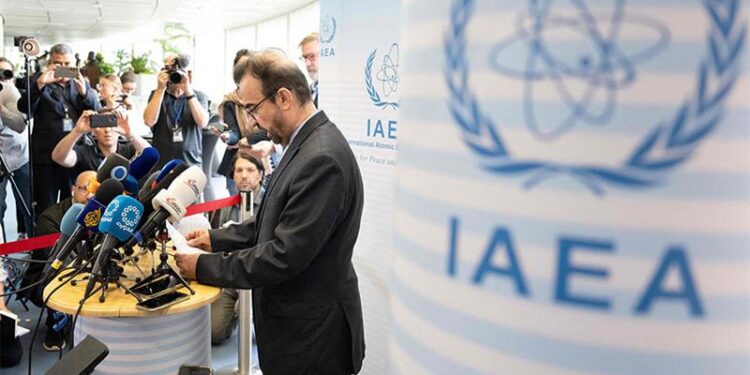The climbing of tensions in the Middle East takes a new step. The Iranian Parliament voted, this Wednesday, the suspension of all cooperation with the International Atomic Energy Agency (AIEA), in reaction to the recent Israeli and American strikes that have targeted several nuclear sites on Iranian territory.
The announcement was made by Iranian state television, citing a declaration by the President of the Parliament, Mohammad Bagher Ghalibaf. “The IAEA, which has not even deigned to condemn attacks against our nuclear facilities, has seriously started its credibility on the international scene,” he said after the vote.
The political leader said that the suspension of exchanges with the UN agency would remain in force “as long as the security of our nuclear sites is not fully ensured”. This decision, which marks a turning point in relations already tense between Tehran and the West, is perceived as a strong political response to the supposed inaction of the IAEA in the face of targeted strikes.
This measurement occurs on the twelfth day of an armed conflict between Iran and Israel, in which the United States has taken part. Since the start of hostilities, several Iranian sensitive installations have been the target of bombing, exacerbating concerns around the Iranian nuclear program and its international supervision.
By suspending his dialogue with the IAEA, Tehran sends a clear signal to the international community: he no longer intends to cooperate as long as his sovereignty and the security of its nuclear infrastructure is not guaranteed. This rupture of cooperation could further complicate the efforts to control the Iranian nuclear program, relaunching fears of increased isolation and a potential recovery of sensitive activities sheltered from any surveillance.








